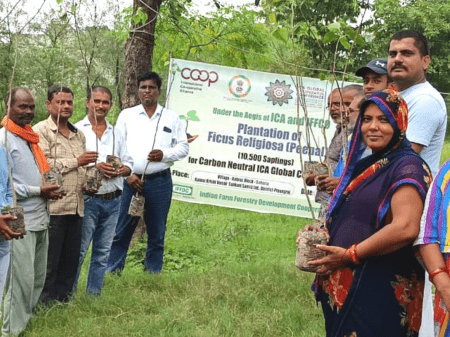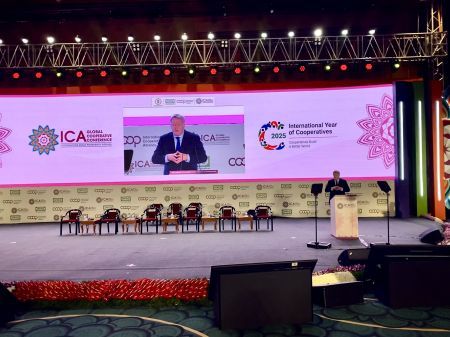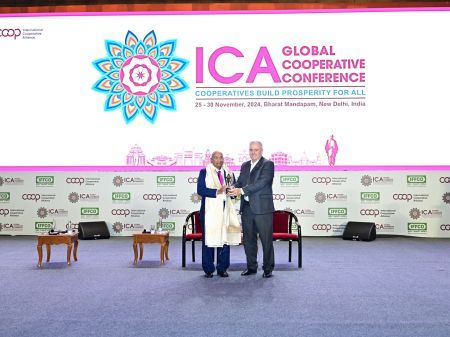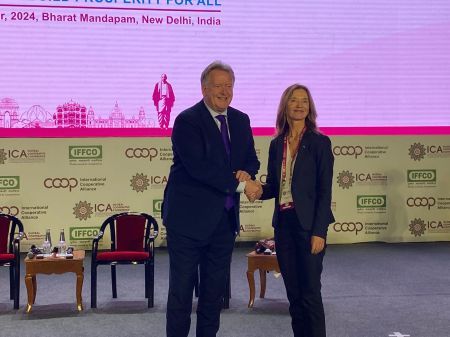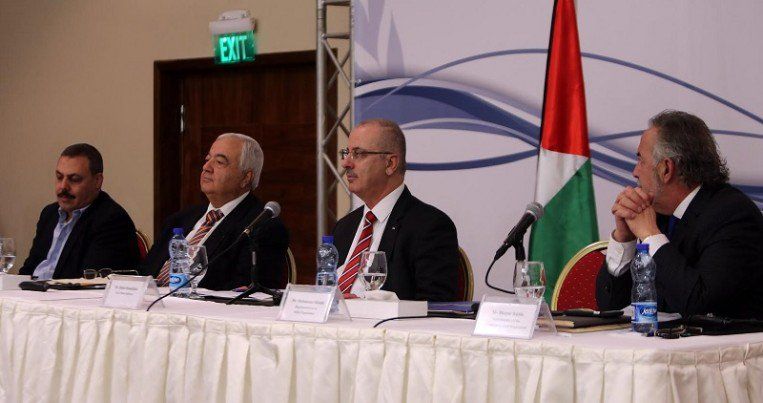
A Cooperative Sector Strategy for the Occupied Palestinian Territory launched in February, at a conference attended by 200 participants from the government, co-operative unions, civil society organisations and the international community.
The strategy was led by the General Directorate of Cooperatives with support from the International Labour Organization and extensive consultations with national stakeholders.
It focuses on three pillars: promotion of the institutional environment to enable the co-op movement to grow; the improvement of financial and organisational performance; and the expansion of co-ops into new sectors such as the environment, recycling and renewable energy.
The need to invest in co-op education and literacy among youth was also highlighted, alongside the potential of the technology industry for both youth and women.
Emanuela Pozzan, a senior regional specialist on gender equality, shared examples of emerging co-ops in finance, care, technology and environment, providing opportunities for groups including youth, women and workers in precarious employment.
But some studies were presented which pointed to structural constraints including lack of capacities, governance systems and administrative bottlenecks.
Minister of Labour Mamoun Abu Shahla said: “There is a need for a full package of incentives to improve the sector through legal reform, provision of tax exemptions and incentives and promotion of local products.”
The current total number of registered co-ops reached 957 in 2016, including 785 in West Bank and 172 in the Gaza Strip. In the West Bank, co-operatives have a total of 46,000 members while 240 of those registered are inactive. Co-operatives are mainly active in agriculture, housing, services, handicrafts and consumers. Women’s presence in co-op activities remains limited.
Further discussions on the financing and implementation of the national strategy for the co-operative sector will now take place.

